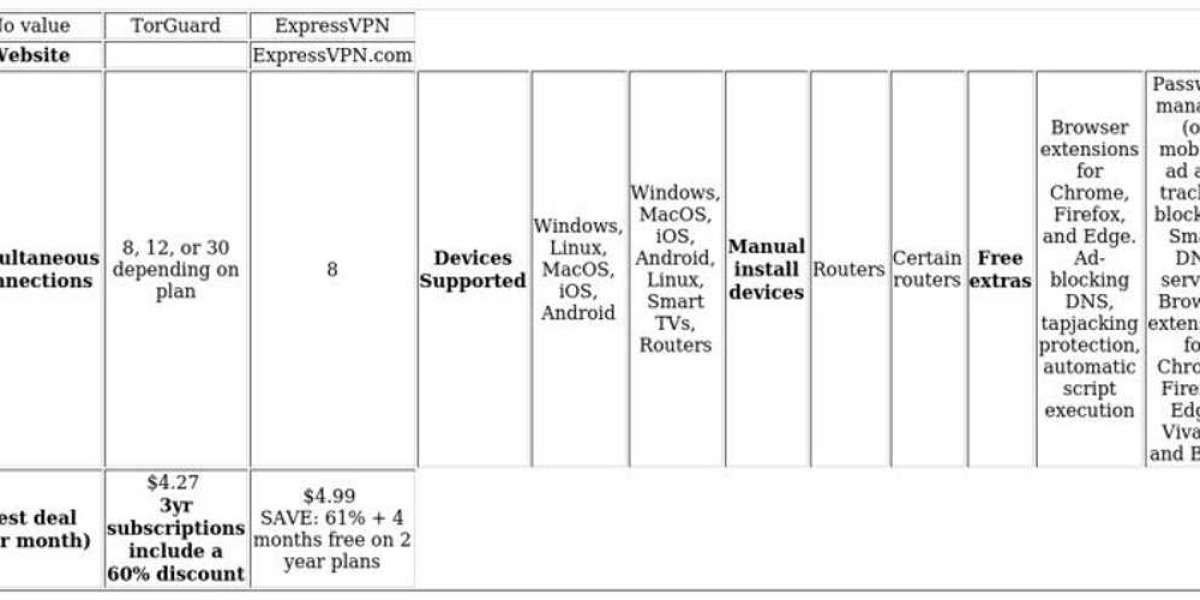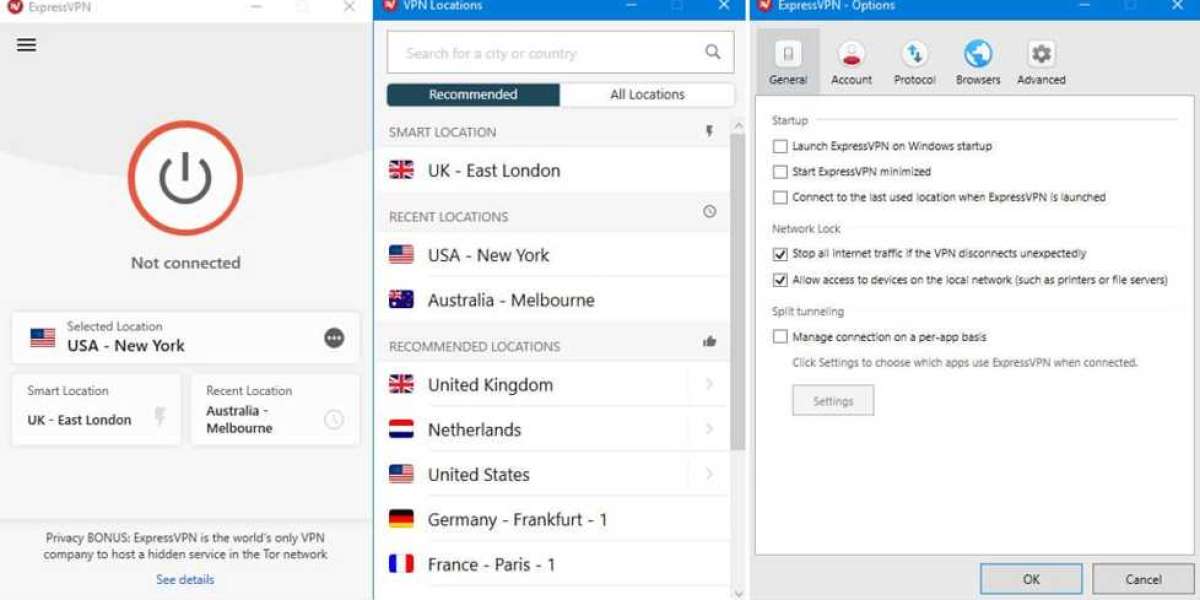VPN Comparison: TorGuard vs. ExpressVPN
Choosing between VPN giants TorGuard and ExpressVPN?
Let’s simplify the chaos of marketing claims and server stats.
Most VPN reviews drown readers in specs or vague promises—
we took both services through weeks of real-world trials instead.
From binge-watching region-locked shows to securing sensitive downloads,
we pushed these providers to their limits.
ExpressVPN impressed with its sleek apps and instant unblocking capabilities,
while TorGuard flexed muscle with customizable encryption and port-forwarding perks.
Forget lab simulations—our tests focused on everyday struggles:
spotty hotel Wi-Fi, stubborn streaming platforms, and privacy-conscious workflows.
Spoiler: both services excel, but for wildly different users.
Streaming addicts might lean one way, tech tinkerers the other.
We’ll break down how each VPN handles connection drops,
government firewalls, and ISP throttling tactics.
No jargon-filled fluff—just raw takeaways from
simulated work trips, midnight gaming sessions, and cross-border video calls.
The verdict? It’s less about “better” and more about
which aligns with your digital lifestyle’s hidden demands.
When comparing TorGuard and ExpressVPN, it's clear that both offer different pricing structures and features. TorGuard provides two subscription options: the Anonymous VPN at $9.99 USD per month, and the Anonymous VPN Pro at $12.99 per month. The Pro plan comes with a dedicated IP address and allows for four extra connections, which may not be necessary for all users, especially considering the 30% higher cost.
On the other hand, ExpressVPN simplifies things with a single tier priced at $12.95 per month.
In terms of flexibility, TorGuard stands out by offering more choices in subscription lengths. For those who commit to longer periods, there are substantial savings. For example, choosing the three-month plan for the Anonymous VPN can save around $10, while the three-year plan offers a significant discount of nearly $220. This brings the average monthly cost down to just $3.88, which is about 60% off the regular price.
ExpressVPN also provides discounts, but they are structured differently. A one-year subscription includes a 50% discount and an additional three months free, effectively reducing the monthly cost to $6.67. While this is a considerable reduction, it remains higher than what TorGuard customers pay for their long-term plans.
Additionally, ExpressVPN offers a 30-day money-back guarantee, allowing users to try the service risk-free and evaluate its capabilities. In contrast, TorGuard provides a shorter seven-day guarantee, which is less generous compared to many competitors but still a valuable option.
When it comes to device compatibility, both TorGuard and ExpressVPN offer comprehensive coverage across platforms. TorGuard distinguishes itself with extensive Linux support, catering to specialized distributions like RedHat, Fedora, and CentOS alongside mainstream options such as Ubuntu. Meanwhile, ExpressVPN takes the lead with browser integration, providing extensions for Vivaldi and Brave in addition to common browsers. Perhaps ExpressVPN's most unique offering is its proprietary router firmware, simplifying the often complex process of VPN implementation at the router level.
Connection limits have been a point of distinction between these services. ExpressVPN recently upgraded its simultaneous connection allowance from five to eight devices for yearly subscribers, matching TorGuard's standard package. For users requiring additional connections, TorGuard's Anonymous VPN Pro plan supports up to 12 concurrent devices, though this comes with premium pricing.
Both services include ad-blocking functionality, but ExpressVPN enhances security further with protection against malicious websites and trackers. Parents and administrators will appreciate ExpressVPN's optional adult content filtering capability.
TorGuard offers a truly unique feature in the consumer VPN market: script execution capabilities. This advanced functionality allows users to run batch and AppleScript files at various connection stages - before connecting, after establishing a connection, and upon disconnection. This powerful customization tool enables technically proficient users to automate processes like launching specific applications or managing files based on connection status. However, this advanced capability seems somewhat misaligned with TorGuard's otherwise user-friendly interface design.
When it comes to streaming capabilities while traveling, ExpressVPN stands out as a top performer. During our recent testing, ExpressVPN successfully accessed all streaming platforms we evaluated, including various Netflix regional libraries, making it an excellent choice for international travelers who don't want to miss their favorite shows.
TorGuard, on the other hand, delivered disappointing results with its standard servers. Most streaming platforms easily detected and blocked TorGuard's regular connections. While TorGuard does offer streaming-optimized dedicated IP addresses, they come with a significant additional cost of $7.99 monthly per country, which seems excessive when many competitors include streaming functionality in their base packages.
For travelers to China, internet censorship presents a major challenge, with many familiar websites completely inaccessible and most VPN services blocked by the government's sophisticated filtering systems.
Both services offer solutions for China, but with different approaches. TorGuard users can connect to specialized stealth servers in Hong Kong and activate the stealth proxy feature manually. ExpressVPN takes a more user-friendly approach with automatic configurations that work seamlessly in restrictive environments without requiring technical adjustments.
While TorGuard does offer a premium stealth proxy service for $14.99 monthly, this additional purchase isn't currently necessary for bypassing China's restrictions. However, users who prefer granular control over their connection settings might find value in this optional upgrade despite the cost.
ExpressVPN offers desktop applications that are thoughtfully crafted, featuring an intuitive and user-friendly design. The interface is streamlined, making it easy for beginners to navigate. It includes distinct sections for choosing server locations and adjusting settings. On the main screen, there are convenient buttons that allow you to connect instantly to the most optimal server or to the one you last used. However, in the latest updates of the app, the feature to display multiple recently-used locations has been removed.
TorGuard's server selection interface offers geographic filtering by continent alongside specialized options like proxy support and dedicated IP availability
While the platform doesn't provide automated server recommendations, its organizational structure compensates through clear regional categorization
The absence of a search bar forces users to manually navigate server lists, though the scroll-heavy process remains manageable for most users
Advanced filtering capabilities partially offset this limitation, allowing targeted access to specific server types without full location search functionality
The settings menu is quite comprehensive, offering a wide array of customizable options that are certainly appreciated. However, many of these settings, apart from those in the general tab, may be too complex for novice users. Additionally, the protocol selection, which is a key feature, is somewhat hidden and can only be accessed from the main page. It's also worth noting that not all servers support both OpenVPN and WireGuard; some are exclusive to one or the other.
Both ExpressVPN and TorGuard provide mobile applications that closely mirror their desktop counterparts. One notable difference is that the kill switch must be manually configured on the mobile apps. TorGuard, in particular, offers a unique feature for mobile users: tapjacking protection. This security measure helps prevent malicious apps from deceiving you into tapping on something by overlaying the screen.
When comparing global server coverage, ExpressVPN dominates with IP addresses available in 105 countries – currently holding the industry record for geographic reach
TorGuard operates a more focused network, strategically covering high-traffic regions like the United States, Germany, and Australia while excluding less common areas
Notably, TorGuard provides rare access to Russian and Bahraini servers – a niche advantage for travelers and expatriates needing localized connections
While these specific locations offer limited streaming or content opportunities, they enable critical access to home-country banking platforms and regional services
ExpressVPN’s extensive country list caters to general users seeking widespread content unblocking capabilities, particularly for popular international media platforms
Both services strategically allocate servers, prioritizing either breadth of coverage (ExpressVPN) or targeted regional accessibility (TorGuard) based on user demographics
VPN Comparison: ExpressVPN vs. TorGuard
Both services handle everyday online activities smoothly, from HD video streaming to large file transfers, without major disruptions.
ExpressVPN emerges as the pace-setter, maintaining blistering speeds regardless of server distance or time of day during our testing period.
TorGuard delivers acceptable baseline performance but exhibits puzzling speed drops on specific nodes, particularly noticeable during peak usage hours.
While streaming 4K content works on both platforms, ExpressVPN provides the edge for data-heavy tasks like real-time cloud gaming sessions.
Network consistency proves crucial - ExpressVPN maintained <80ms latency on transatlantic connections versus TorGuard's 150-300ms fluctuations.
TorGuard users might experience brief buffering during server switches, whereas ExpressVPN transitions between nodes almost imperceptibly.
When evaluating security architectures, both VPNs employ military-grade AES-256 encryption for data protection
ExpressVPN enhances this with 4096-bit RSA keys, doubling the standard 2048-bit length used by TorGuard
The extended key strength exponentially increases computational effort required for potential decryption attempts
Protocol diversity sets these services apart – while OpenVPN remains a shared foundation
TorGuard offers WireGuard compatibility on limited server networks
ExpressVPN counters with its proprietary Lightway protocol, optimized for speed and network stability during transitions
Lightway’s open-source code has undergone multiple independent security audits
Network lockdown features show parity: both include connection-kill mechanisms
The Android implementations differ – neither offers native app kill switches
Mobile users must rely on OS-level settings to mimic this protection
Real-world performance testing reveals Lightway’s efficiency advantages
WireGuard deployments in TorGuard demonstrate modern protocol benefits
Both providers maintain zero-logs policies to complement their technical safeguards
When considering a VPN, the location of its headquarters is crucial as it dictates the legal framework the company must adhere to. ExpressVPN is based in the British Virgin Islands, a region known for its stringent privacy laws and absence of mandatory data retention policies. In contrast, TorGuard is headquartered in the United States, a member of the Five Eyes alliance, which could potentially expose your online activities to surveillance by other alliance members.
Fortunately, both services are committed to user privacy. TorGuard boasts a no-logs policy, meaning they do not store any information that could identify you. ExpressVPN, while maintaining a strong privacy stance, does log some minimal, non-identifying data, such as the date (but not the time) of your connection, the country you connect from, the server location, and the bandwidth used.
However, the trustworthiness of a VPN's logging policy is often a concern, as some providers may not be entirely transparent. To address this, ExpressVPN has undergone independent audits of its privacy policy, Lightway protocol, and applications, providing assurance to users. As of now, TorGuard has not been externally audited, though it has expressed intentions to do so in the future.
Both services allow for anonymous sign-ups, with ExpressVPN accepting Bitcoin payments. TorGuard, however, offers a more diverse range of payment options, including various cryptocurrencies and gift cards from other companies. This flexibility means you can pay with, for example, a BestBuy gift card, thereby avoiding the need to provide personal payment information that could link you to your account.
When technical hiccups arise with VPNs, responsive support becomes critical for users navigating intricate setups or connection issues.
ExpressVPN prioritizes multimedia guidance, maintaining an active YouTube library with step-by-step tutorials tailored to evolving software versions.
TorGuard’s video resources, however, lag behind—its dormant channel lacks recent updates, potentially leaving users with outdated troubleshooting steps.
Both services provide real-time chat assistance, ideal for urgent queries, but complex cases may require detailed ticket submissions.
TorGuard compensates with a community-driven forum, fostering peer-to-peer troubleshooting and feature discussions absent in ExpressVPN’s support ecosystem.
While knowledge bases and FAQs cover basics, the depth of self-help tools varies—ExpressVPN’s visual aids contrast with TorGuard’s reliance on user-generated solutions. While both TorGuard and ExpressVPN deliver robust services, our in-depth analysis and testing have led us to favor ExpressVPN. Here’s a detailed breakdown of our findings:
ExpressVPN stands out with over twice the number of server locations compared to TorGuard. This extensive network ensures better access to content and reduces latency, which is crucial for smooth streaming and gaming experiences.
In terms of speed, we conducted multiple tests across various locations. ExpressVPN consistently delivered higher average speeds, providing a more reliable and faster connection. This is particularly important for activities like streaming, video calling, and online gaming.
For everyday use, ExpressVPN excels by offering seamless access to a wide range of streaming services without any additional charges. It also handles tasks like video calls, online gaming, and torrenting with ease, ensuring a smooth and uninterrupted experience.
Security and privacy are paramount, and ExpressVPN has demonstrated its commitment to these aspects. It uses top-tier encryption, includes features like DNS leak protection and a kill switch, and follows a strict no-logging policy. Additionally, ExpressVPN has undergone independent audits, further enhancing its reputation for privacy and security.
Ease of use is another key factor. ExpressVPN offers user-friendly apps for multiple platforms, making it accessible to users of all technical backgrounds. It also provides robust customer support, ensuring that help is always available when needed.
Value for money is an important consideration. Both services offer competitive pricing, but ExpressVPN provides a more comprehensive set of features and benefits. The service also offers long-term discounts and a 30-day money-back guarantee, allowing you to try it risk-free.
It's worth noting that neither TorGuard nor ExpressVPN offers a free trial period. However, they both provide money-back guarantees, giving you the flexibility to test the services and cancel if they don’t meet your expectations.
When it comes to torrenting, both services allow P2P activity. However, there is a notable difference: ExpressVPN permits torrenting on all of its servers, while TorGuard recently blocked P2P activity on its US servers due to legal challenges. This means that while you can still torrent using TorGuard, you may need to connect to servers in other countries.
In summary, ExpressVPN emerges as the more versatile and reliable choice, offering superior performance, security, and ease of use. While TorGuard has its merits, ExpressVPN’s broader server network, better speed, and commitment to privacy make it the preferred option for most users.
What is a Netflix VPN and How to Get One
A Netflix VPN is a service designed to help users bypass geographical restrictions and access diverse content libraries available in different countries. By masking the user’s IP address and routing traffic through servers in specific regions, a Netflix VPN enables streaming of exclusive shows, movies, and titles not accessible in their local area. This tool is popular among viewers seeking to enhance their entertainment options by unlocking global Netflix catalogs.
Why Choose SafeShell as Your Netflix VPN?
If you want to access region-restricted Netflix content, SafeShell VPN is a top-tier solution for seamless Netflix unblocked experiences.
- High-Speed Streaming : SafeShell VPN offers servers optimized specifically for Netflix, delivering buffer-free HD streaming to ensure your favorite shows play smoothly without lag.
- Multi-Device Support : Connect up to 5 devices simultaneously across platforms like Windows, macOS, iOS, Android, and smart TVs, letting you enjoy Netflix unblocked on any screen.
- App Mode Flexibility : Unlock multiple regional libraries at once with SafeShell’s exclusive App Mode, expanding your access to global content while maintaining a stable connection.
- Unlimited Bandwidth : Experience lightning-fast speeds with no throttling or data caps, perfect for binge-watching Netflix in ultra-high definition.
- Advanced Security : The proprietary ShellGuard protocol encrypts your traffic, safeguarding your privacy while streaming, so you can browse and watch with confidence.
- Risk-Free Trial : Test all features with SafeShell’s flexible free trial, exploring its Netflix unblocked capabilities and premium security before committing.
A Step-by-Step Guide to Watch Netflix with SafeShell VPN
To start using SafeShell Netflix VPN , follow these steps:
- First, visit the SafeShell VPN website and subscribe to a plan that suits your needs and budget.
- Next, download and install the SafeShell VPN app on your device, whether it's a Windows PC, macOS, iOS, or Android.
- Once installed, launch the SafeShell VPN app and log in to your account.
- Choose the APP mode for an enhanced Netflix experience.
- Browse the list of available servers and select one located in the region whose Netflix content you want to access, such as the US, UK, or Canada.
- Click "Connect" to establish a connection to the chosen server.
- Finally, open the Netflix app or visit the Netflix website, log in with your Netflix account, and enjoy streaming content from the selected region.








